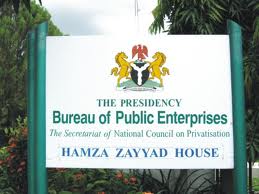The Director-General, Bureau of Public Enterprises (BPE), Mr Benjamin Dikki, said the non-passage of the Petroleum Industrial Bill (PIB) had hindered investors from showing interest in the country. This is contained in a statement by its Head of Public Relations, Mr Alex Okoh, in Abuja.
Dikki made the statement when he received a team from the World Bank on a courtesy visit. He said that if passed by the National Assembly, the bill would help in growing the economy and creating more jobs. He noted that five other bills relating to the transport sector were presented to the 7th National Assembly for enactment but were not passed before its expiration. He, however, expressed hope that the 8th National Assembly would expeditiously pass the bills when re-presented by the executive arm.
“Once the bills are passed, other new regulatory agencies would be set up or existing ones restructured. The passage of the bills will facilitate private sector investment in infrastructure like railways, roads and inland waters ways. This will relieve the Federal Government from investing in these sectors and free resources for the change Nigerians yearn for,’’ he added.
Dikki however informed the team that the Federal Government was working on reforming the sports, hospitality and tourism, river basins, housing and road sectors.
He also noted that given the huge population of 160 million Nigerian sports enthusiasts, a lot of potentials were in the sector. He said that if well harnessed, it would be a veritable income earner for the country as was the case in Britain and other countries. He urged an urgent reform of the education sector to ensure enforcement of standards at the primary and secondary levels.
Dikki said although there were regulatory institutions for tertiary education to ensure the enforcement of standards, it was not the same for the primary and secondary levels.
The DG said that lack of regulation at the levels had resulted in the falling standards at the foundation level of education in the country. He attributed crimes and other anti-social behaviours plaguing the country to the falling standards of education at the primary and secondary levels.
“It is disheartening that students finish secondary school and cannot read or write properly,’’ he said. Dikki said that the bureau was constrained to undertake reform initiatives at the primary and secondary levels due to constitutional provisions.
“What at present obtains is that the Federal Government controls only the tertiary institutions in the country while the states and local governments control secondary and primary education. Until we bring the primary and secondary levels under a regulatory regime that enforces uniform standards across the nation, the decline in standards will continue. Schools that do not meet the standards and waste the formative years of our youths should be closed,’’ he said.
He also informed the World Bank team that the bureau planned to reform the health sector in the country to check quackery and high medical pilgrimage abroad by Nigerians. Dikki said that the Federal Ministry of Health and the bureau had already begun a joint preliminary review of the sector legislation to reform it.
He thanked the World Bank for the sustained support and funding of the Federal Government reform initiatives. The leader of the World Bank team, Guillemette Jaffrin, said that the bank would conclude review of its activities in Nigeria within the week.
This, she said, necessitated the visit to the organisation because the bank needed to have the bureau’s inputs in its review. She, however, said that all the concerns raised by the bureau would be accommodated in its report.

